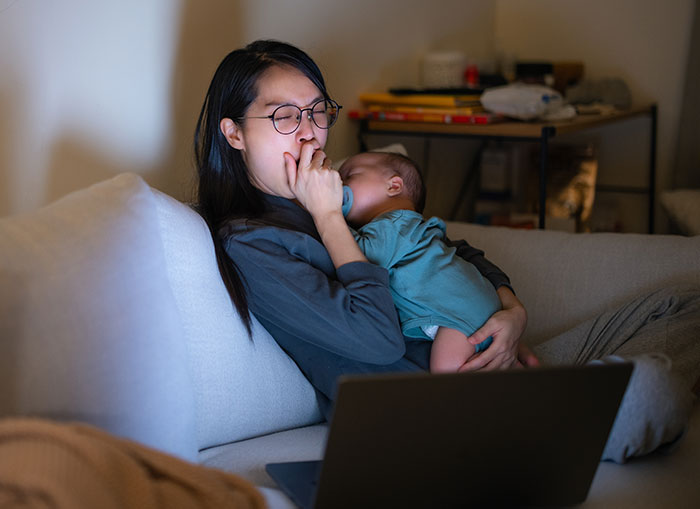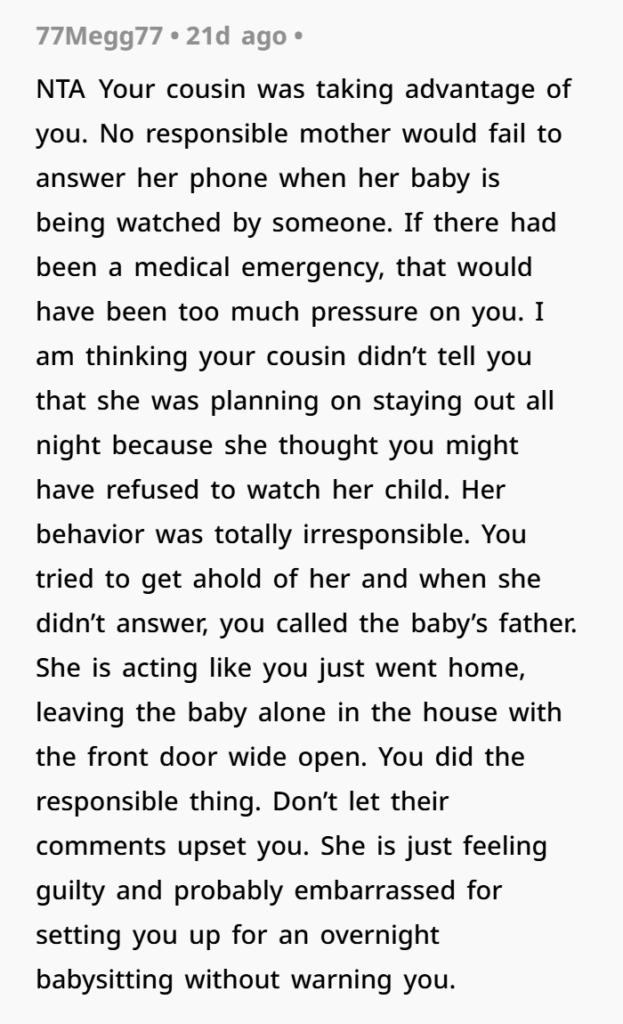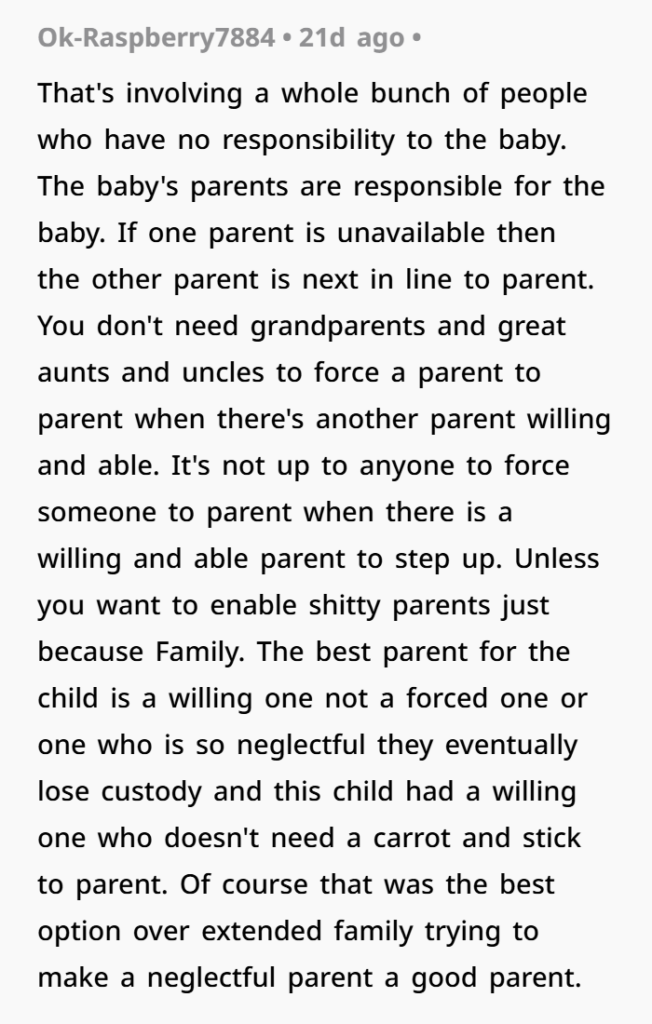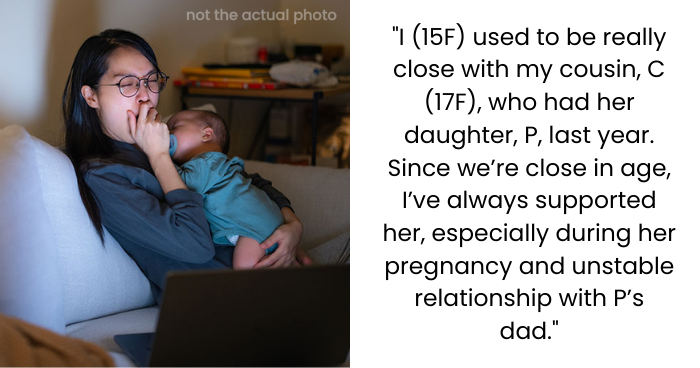Exhausted Teen Babysitter Calls Child’s Dad After Overnight Stress, Sparks Family Outrage
When her 1-year-old daughter was dropped off overnight by her 17-year-old cousin without warning, a 15-year-old girl posted online asking if she was being unreasonable. At 11:30 PM, when her cousin, “C” had still not come home and only texted at 3:00 AM to say she was not coming home, the babysitter became overwhelmed. When the baby woke, and she was unable to settle him, she called the child’s father, C’s ex, who immediately came and got her.
The decision seemed practical to many — but C hit the roof, calling the babysitter a Judas and accusing her of taking sides against her in their ongoing disputes with her ex. The babysitter claimed self-defenses, pointing out that she had never agreed to stay for the night, that she was concerned about the kid and did everything in the interest of the baby. It then worsened, dividing family and friends.
Working as a babysitter when the parents don’t show up is always stressful

Which is why one young woman decided to call for help when the kid’s mom didn’t come home


















Parental Responsibility vs. Babysitter Expectations

But it also shows the grey area of being a babysitter and being a parent. Babysitting is often flexible, but there are rules that implicitly guide it. Everyone sucks here — yes, OP is only 15, but her cousin is out of line for assuming free child care services without discussing it with OP first; her aunts were doing OP a favor by taking her in, NOT the other way around. Most state childcare guidelines state that unless otherwise agreed upon, caregivers under 18 should not be expected to assume total parental functions.
The Role of the Other Parent in Emergencies
Calling the babies father when there is an emergency and you are overwhelmed was a logical thing to do. Except under specific court orders, family law typically regards both parents as equal custodians. There is no way OP would know that contacting the father was out of bounds especially since they have taken care of the child before. Also, the fact that the father was ready to reply immediately indicates that he had the best interest of his daughter at heart and that an obligation that a parent needs to fulfill in almost all the legal systems.
Emotional Labor and Teen Caregivers
Then from this, young caregivers will face difficult situations which only results in emotional exhaustion. Studies show that to thrust an adolescent into adult responsibilities without the preparation is to ask the unimaginable. OP sounded tired, anxious, and overwhelmed—all indications of how her cousin’s move put her in a bad spot. Parents who leave children with underaged caretakers have an ethical responsibility, as gray as that may be, to ensure that the responsibilities of caretaking are within what the caretaker is capable of doing.
Family Dynamics and Boundary Setting

OP’s cousin, and fried potato wedges as well, a clear reflection of the dysfunction her family as a whole damages the latter която. C is probably still fighting with her ex and taking that out on OP is not right or fair. If they plan to go on with this relationship, it’s essential to set some boundaries; relying on OP without listening to what she has to say may generate more resentment in the near future, not to mention damaging the nature of their relationship. Psychologists who specialize in family conflict explain that by putting forth clear boundaries you suppress any sense of guilt and without offending family members, you are creating a healthier interaction.
Verdict: Not the A-Hole
I think OP did well to handle this overwhelming scenario. Sure, calling her parents for advice would have been perfect, but we don’t know the entire situation, and it made sense for her to contact the baby’s dad. The real problem was her cousin not communicating and confusing her own child and some 15-year-old would be able to take care of a unplanned overnight baby-sitting experience.
From now on, if this happens again, OP should tell her cousin, pa and mom to stay away from her stuff, or find another adult who can stick up for her if her cousin won’t listen. It also highlights the necessity to provide the adequate tools for young caregivers that take on such roles.
Most thought she was not to blame






